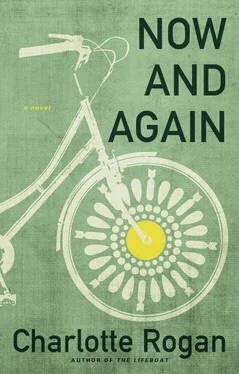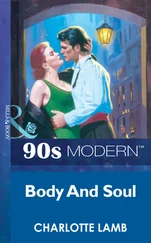He wished he had someone he could discuss it with, but Danny had started talking about going back to Oklahoma and it wasn’t the sort of question Le Roy cared about. If Danny left, he would be shorthanded if he wanted to turn the website into something bigger and more significant than it was now. Unless he decided to sell and get out from under the shadow of the war once and for all, the way Hernandez had done.
Closing the door on the street sounds, he poured himself another cup of coffee and sifted through the morning’s email correspondence. One of the volunteers wrote to suggest moving the site overseas, and the captain to say they were in over their heads — as if they couldn’t handle things without him! But he couldn’t worry about that now. The buyers would be there in just under four hours, and he still had to print out the spreadsheets and figure out his strategy regarding the sale. Then he had to loop Le Roy and Danny in on whatever the strategy was and remind them to let him do the talking. He guessed they could play a waiting game. He guessed they could listen and give the purchasers just enough information to buy themselves a little time.
The question of what Kelly wanted for the website was complicated by the question of what he wanted for himself, but that was becoming clearer. The idea that he was positioned to do something truly good took hold of him the way the starched collar and cuffs took hold. “Unsettling”—that was the word for it. Equally unsettling was a new and insistent desire to talk things over with Joe Senior, who was his father after all. He’d missed Christmas and Easter, but he’d go home for a weekend soon — the Fourth of July was approaching — he’d go home for that. Not that Hoboken was home. Of course it wasn’t. While he was there, he’d call up that Rita woman and get to know her better. An election was coming up in a few months — hell, maybe he’d even vote.
12.4 Le Roy Jones
While Kelly got ready for the meeting with the buyers, Le Roy generated a string of random numbers for use as an encryption key in preparation for receiving some explosive documents from his contact at the NSA. It was also a good idea to encrypt any encryption key and store it in a safe place. Le Roy believed in Kerckhoff’s principle, which said that an encryption system would remain secure if the key was secure. Even if everything else about the system was known to the enemy, the key was, well, the key. That made where to store the key the most important decision he had to make. While he was thinking about it, he sent an email to E’Laine:
I just did 5 miles in less than thirty minutes and I hardly broke a sweat.
With the captain gone and E’Laine back in Detroit, the warehouse seemed empty, like there was a blank place in Le Roy’s peripheral vision despite the fact that the row of sturdy, mismatched desks and the metal lockers and the cots and the kitchenette were still in their usual places — everything solid and just as it should be. As soon as he got back to work, the hole in the universe closed up until the next time he happened to raise his head, always scuttling just ahead of his line of sight. It was almost noon when he saw it — a shadow moving on the porch, an incomplete silhouette creeping and crouching silently, smoke-colored and indistinct. He sat cemented to his chair, afraid in a way he hadn’t been afraid since that day in Iraq, trying to figure out what it was. Just then his email pinged with a reply from E’Laine, and he turned his attention back to the screen.
Good going, track star.
Le Roy went back to figuring out where to store the encryption key and decided he could send it to E’Laine.
I’m putting something in your drop box. Keep it in a safe place until I ask for it.
You can count on me.
I know I can.
Now that that was solved, Le Roy could get back to work on his simulation. He felt good about the arrangement, but he knew that encryption programs and even keys weren’t the most important link in any security chain. People were.
12.5 Danny Joiner
When the stapler misfired for the third time, Danny threw it across the room. “Who bought this piece of shit?” he wanted to know, but Kelly was printing out documents and Le Roy was deep inside his simulation. They had their headphones on, happy in their separate bubbles of isolation.
As Danny watched them, his irritation was replaced by an unfamiliar sense of belonging, and when he walked over to retrieve the stapler, he put a hand on Le Roy’s shoulder and left it there for a moment before getting back to work on his epic. He had changed the beginning several times, trying to get it right. A possible title was “The Mars Hoax,” which referred to both the Roman god of war and to a widely believed but erroneous report about the planet that was based on a misread email. “Are Ares and Mars the same?” he had asked the captain a week or so before he left. “Or are there subtle differences between them that will color the meaning of whichever one I use?” The captain had studied classics as well as philosophy and seemed to have been placed right there across the room from Danny in order to answer his questions about the two ancient gods of war.
“They’re different,” said the captain. “Ares was destructive and destabilizing, whereas Mars saw war as a pathway to peace.”
“Awesome!” crowed Danny. “Just what I was looking for!”
Sometimes he wanted to zero in and sometimes he wanted to telescope out, and the word “Mars” allowed him to do both. It was a vast red planet with impact craters and frozen polar caps, but it was only visible from earth as a pinprick of light. Not only was the entire solar system swept up in those four little letters, but also the color red, which was the color of anger, the color of passion, the color of blood and lust and love. The word was tailor-made for his purposes, and finding out about the opposing war connotations had given him a sense of order and control he had never experienced before. He thought how time was like a funnel for events, where everything in the past made the present seem ordained: the World Trade Towers had led to the war, which had led Danny to his unit and the IED and the warehouse and the epic, and finally to just the word he wanted—“Mars.” It might be an illusion, but it all felt inevitable and fated. And then he wondered if inevitability was the same as determinism, which didn’t allow for choice. Choice seemed just as real as inevitability did, but they couldn’t both be true.
“Do you believe in free will?” he asked, but no one heard him, and even if they had, free will wasn’t something Kelly or Le Roy thought about. The three of them were as close as human beings could be, but the truth was, the only thing they had in common was the war.
The epic had to work on several levels at once, with particular words, like “Mars” and “red,” acting as bridges between worlds that existed simultaneously, that could be sensed but not inhabited by a single person all at once. How did a linear and specific string of words portray both vastness and minuteness, simplicity and complexity, possibility and finality, choice and inevitability, self and other? How did he indicate that horror and beauty coexisted — in the same moment, in the same heart?
The Mars thread was finally working, and he had devised a system of footnotes to indicate that not only were there layers to the epic, but there were layers upon layers. He just needed to find a synonym for “help”—or did he?
War, war, what’s it for
Help the rich and draft the poor.
Whether he needed it or not, the perfect word was out there, and he was going to find it. It was in the air. Could be it was already in his head — he could feel it hovering, somewhere between his ear and his eye. He knew it was there, but he couldn’t quite catch it, and now for some reason Le Roy was trying to get Kelly’s attention by making faces and jumping up and down. Kelly was standing in a corner with his headphones on and his back to Le Roy, working on what he was going to say at the meeting. Kelly didn’t want to be distracted, and Danny didn’t want to be distracted either. He wanted to hold on to the sense that things were falling into place. He arranged the pens and pencils on his desk and squared the edges of his manuscript. Then he set the blue mechanical pencil he had been using down in the very center of the top page. Vertical or horizontal? He left it where it was. What was it? What was going on? Why was Le Roy opening and closing his mouth like a fish? Was it because the website was about to be sold and he didn’t do well with change? Why did he look like he was going to fly out of his chair and grab Joe Kelly by the neck?
Читать дальше












